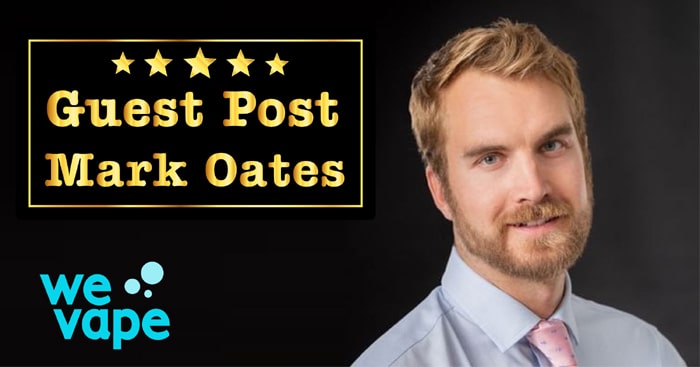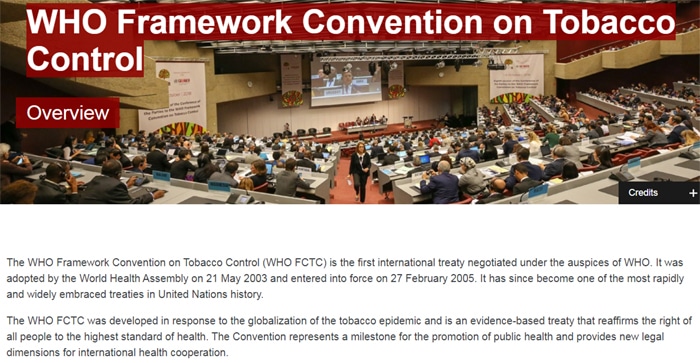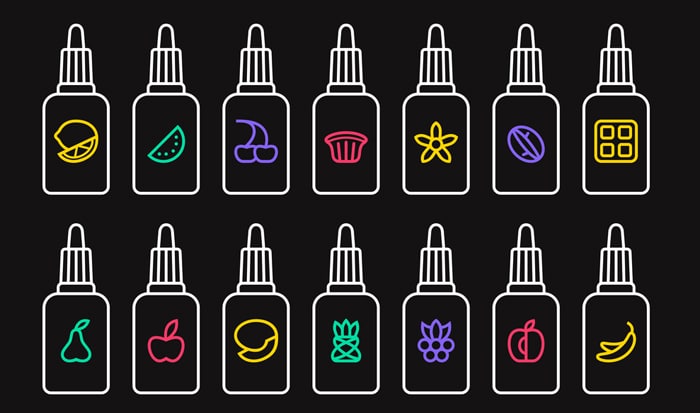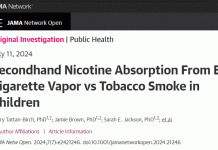When the life-saving benefits of vaping were finally accepted and backed by the UK government, England was at last given a fighting chance of reaching its 2030 smoke-free target.
One-in-five of all smokers in the country are now being offered vape starter kits as part of the “Swap to Stop” initiative to slash cigarette consumption from the current 13.3% to less than 5%, in an apparently unique initiative.
The United Kingdom has followed the world-leading Swedish model of promoting harm reduction measures, like e-cigarettes, to reduce smoking.
And the model works.
Yet in November we will yet again see the World Health Organisation (WHO) – largely funded by China, where one in three cigarettes on earth are smoked each year – ignore science, expert reports and even their own research in a bid to attack vaping.
This will be the process of COP10 in Panama, part of the Framework Convention on Tobacco Control (FCTC).
And it should cause serious alarm for those of us who believe vaping has a crucial part to play in eliminating cigarettes.
This is because the recommendations made by WHO have historically and demonstrably been undertaken as policy by governments around the world – including the UK. This in turn influences world opinion and attitudes towards lifestyle behaviours, like vaping, regardless of any evidence that counters an established narrative.
This is why We Vape is running its Back Vaping Save Lives campaign, to educate and embolden the millions of vapers in the UK whose freedom to use a life-saving tool is under attack. The UK will have a delegation at COP10. Whether it chooses to use its voice will depend on the weight of expectation it feels from the public at home.
So what are the big issues?
As it stands, the FCTC wants vaping and cigarettes classed effectively as the same thing.
Even lumping e-cigarettes into a tobacco category is disingenuous, as vapes do not contain any. But that is where vaping is placed in a convention that bans journalists and decisions are made by consensus, not votes. If no objections are received the proposals are automatically granted. And while the UK will be represented, all WHO recommendations are widely expected to sail through unchallenged.
There is no agenda yet available, but a report from the COP9 and current recommendations reveal what we might expect in Panama.
So let’s have a look at exactly where WHO stands on three big issues, and what it is likely to recommend to the UK – a world leader in eliminating smoking – and all its members.
A redefinition of the word ‘smoke’
In a cynical piece of language manipulation, WHO has suggested it could claim clouds emitted from vapes are the same as those from combustible cigarettes.
They state that ‘strictly speaking, visible aerosols deriving in whole or in part from thermally driven chemical reactions qualify as “smoke”, even when combustion is not involved.’
Wrong.
Smoke is the ‘Grey, Black, or White mixture of gas and very small pieces of carbon’ that is produced when something burns, as any dictionary will tell you.
Smoke comes from fire. Combustion. It is full of carcinogens. Vapour from e-cigarettes does not come from fire and has no carcinogens – because it isn’t smoke.
But WHO doesn’t let facts get in the way of an agenda.
Instead, it has simply changed what the word “smoke” means and hopes people won’t notice. They can’t vote on it, after all.
A ban on all flavours
WHO highlights the need to stop children vaping and I wholeheartedly agree. But as a solution, it advises flavours outside of tobacco should be banned because they are only produced to lure kids into the market. The reality is quite different. We know the majority of switchers choose vaping because they enjoy the variety of flavours on offer.
And so does WHO.
According to its own reports: “Among adults, e-cigarette flavours increase product appeal and are a primary reason for using the product”.
It then goes on to recommend prohibition.
Rather than working up a compromise that would both protect children (clamping down on illicit products and sales to minors) and the interests of smokers wishing to switch (concede flavours work to help people stop smoking and therefore should remain), WHO would prefer simply to ban the lot, consigning many smokers to an early grave.
It seems strange to me that while we see sweet, artificial flavours in alcohol children might like, there are no calls to ban the hundreds of fashionable, infused Gins or Ciders that will no doubt be served in Panama as WHO attempts again to distort the facts about vaping.
Taxation at the same rate as cigarettes
WHO believes huge tax hikes for e-cigarettes will deter young people from using them. It won’t, because many young people secure illicit vapes online.
Instead, such a move would target low-income groups, which research has long shown contain a higher proportion of smokers, and suggests vaping and smoking carry a comparable risk, when we know they do not. This will lead fewer people to make the switch. It could also have a negative economic impact on the economy. The e-cig industry in the UK is worth £3 billion and continues to rise, easing the treasury’s losses from plummeting tobacco and cigarette sales.
By taxing both products at the same rate, demand for vaping will level than likely fall, deterring investment and research in a sector which has already proven it can save millions of lives. Imposing huge tax hikes on vapes is a regressive approach that hurts the most vulnerable and the economy, whilst simultaneously discouraging the use of smoking cessation tools.
The Way Forward
The UK has made tremendous strides in eradicating the scourge of cigarettes but there is more to be done.
Four in ten smokers still wrongly believe vaping is more harmful than smoking.
And in Panama, 194 WHO member states will be told a repackaged narrative that vaping is a force for evil.
It must be remembered whilst it cannot force members’ domestic policy, WHO plays a crucial role in setting what we see as global health norms and standards. Its guidelines are often a reference point for countries developing their own policies, so if vaping is seen as bad – countries will restrict or ban it. WHO has a real impact on how we view health issues, often without us realising it.
Because of this influence and if it wants smoking levels reduced, WHO should be looking at the UK as a model for successfully tackling smoking and encouraging its members to follow suit. It should highlight its community’s success stories, not contradict them or attack a UK government policy which has been proven to work.
I am calling for those in the vaping community and beyond to write to their local MP and ask what is being done at COP10 to protect and promote the steps taken in the UK to stop smoking.
We know WHO, which of course faced international scorn over its relationship with China during the pandemic, cannot be trusted to act in the interests of the everyday person in the street.
But by pushing our representatives to stick up for vaping, the British model and the millions of ex-smokers who support it, we can protect the ground gained in the war on cigarettes, and encourage other countries to follow the life-saving examples we have set.
Please write to your MP to express your objections to these real threats against vaping. By going to our campaign website: https://backvaping.co.uk.
You can also write a bespoke letter by using the Write to Them website.
Mark Oates
Ecigclick Response
Thank you so much Mark for taking the time to write this post for us and we are pleased to support your Back Vaping Save Lives campaign.
We urge our readers to get involved and the website makes it easy for you to get your voice heard.











